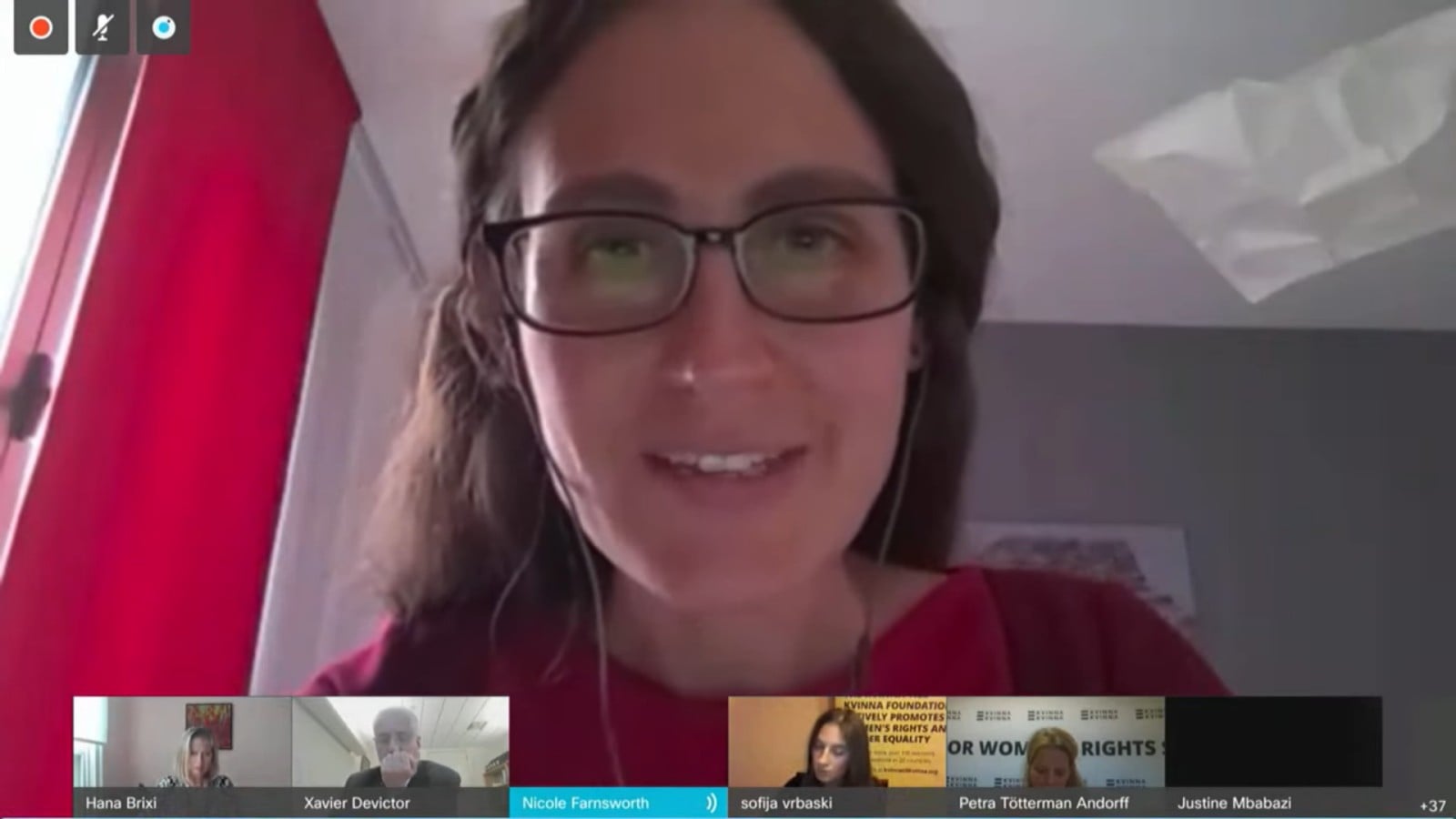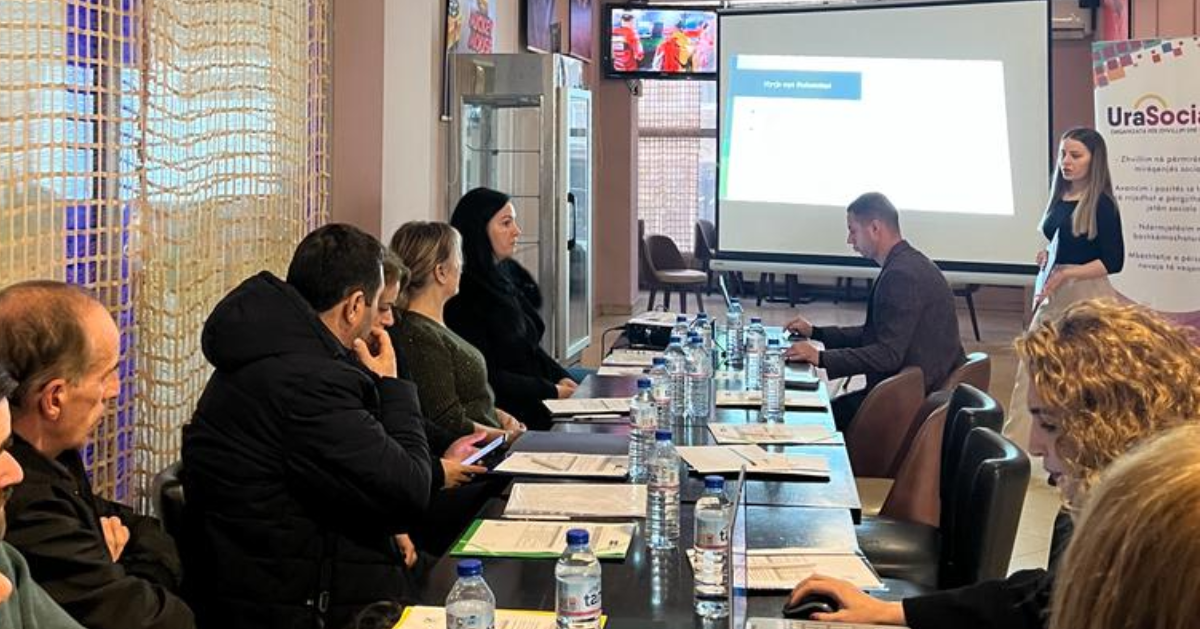On 7 October, Kvinna till Kvinna organized a panel at the World Bank/IMF Civil Society forum on the role of the World Bank in combatting economic gender inequality in conflict-affected countries. The event was hosted by Petra Totterman Anforff, Secretary General of the Kvinna till Kvinna Foundation, who presented their report Challenging the norms – Global stories of women’s economic empowerment.
Panellists discussed how COVID-19 has furthered pre-existing gender inequalities, especially in crisis-affected countries. They emphasized the need for a feminist recovery.
Audience members asked important questions of the panellists, such as whether the World Bank is undertaking ex-ante and ex-post gender impact assessments to see how its macroeconomic policies are affecting gender (in)equalities.
Nicole Farnsworth from KWN engaged briefly with three recommendations for the World Bank, deriving from KWN and other women’s rights organisations’ research in Kosovo and the Western Balkans. The main recommendations included:
- World Bank representatives need to consult women’s rights organisations (WCSOs) and movements more in planning and implementing interventions.
- The World Bank should strongly consider reviewing its financing modalities to better enable the contracting of WCSOs to provide expertise to the World Bank; and to earmark long-term, flexible grants for supporting WCSOs and movements, as strategic partners in instigating change.
- The World Bank should support WCSOs politically and financially, as experts, in utilizing the Public Expenditure and Financial Accountability (PEFA) Supplementary framework for assessing gender responsive public financial management in their countries; should support WCSOs’ advocacy for governments to institutionalise gender responsive budgeting as per the PEFA gender framework; and must practice what it preaches by ensuring that all programs that it funds use gender responsive budgeting, especially World Bank budget support to governments.
Panellists included Sofija Vrbaski from the Kvinna till Kvinna Foundation who spoke about economic inequalities in Western Balkans in light of the pandemic and how the regional coalition to address gender-based discrimination at work has used advocacy to address inequalities. Dr. Hana Brixi, Global Director for Gender at the World Bank, presented how the World Bank views its role in supporting the women’s movement and economic gender equality in conflict affected countries. Xavier Devictor, Manager for Fragility Conflict and Violence at the World Bank spoke about how the World Bank works to have a dialogue with women’s rights organisations in conflict-affected countries. Rula Asad, Executive Director of the Syria Female Journalist Network, spoke on the challenges female journalists face working in Syria and how the Syrian Female Journalist Networks has combatted patriarchal structures within media outlets.
KWN has been engaged in gender-responsive budgeting since 2011, and it is part of the Gender Budget Watchdog Network (GBWN), through which CSOs are monitoring and supporting government efforts to institutionalize gender-responsive budgeting in the Western Balkans and Moldova. KWN recently published “The Pandemic Knows No Gender”? A Gender Fiscal Budget Analysis of the Government of Kosovo’s Response to the COVID-19 Pandemic from a Gender Perspective, which recommends steps towards a feminist post-COVID-19 recovery. KWN shared this and CSOs’ similar reports during this event, available on the GBWN website. The network has also monitored Western Balkan governments’ progress in implementing the Sustainable Development Goal indicator 5c1 on gender budgeting.
KWN’s research with Kvinna till Kvinna and other women’s rights groups in the region, entitled Where’s the Money for Women’s Rights?, involved interviews with more than 241 diverse women’s rights groups across the Western Balkans. It demonstrated that WCSOs play a crucial role in advocating for evidence-based legal and policy changes, providing essential services not provided by states, and consistently pushing for transforming social gender norms. Yet, they are sorely under-financed and need long-term, flexible, core financing towards realising their long-term strategic interventions towards transforming gender norms and contributing to gender equality.







